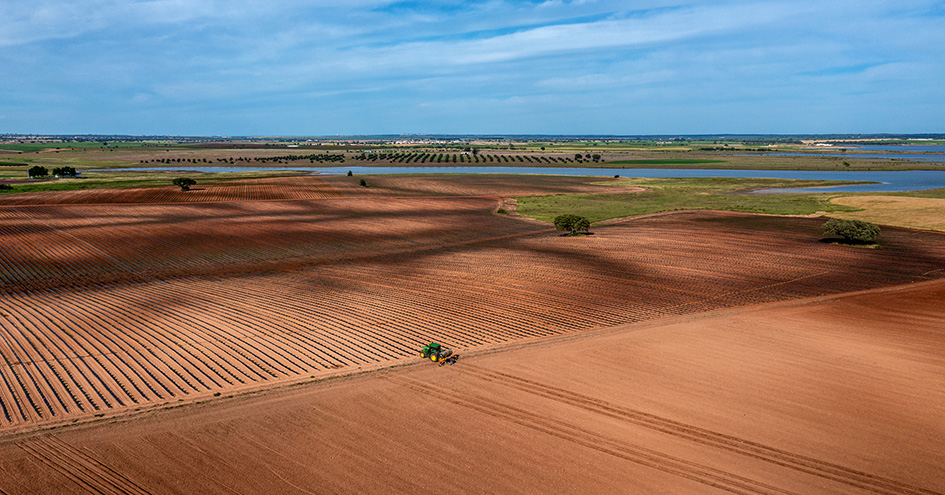Our Climate Transition Plan1 sets out our strategy and ambition in what regards the reduction of the carbon footprint of the value chain and includes measures to identify and assess climate-related risks and opportunities. Collaboration with our supply chain, particularly with Private Brand and perishables suppliers, has enabled us to identify implemented mitigation measures, such as the installation of renewable energy production systems on their units, and measures to adapt to possible changes in production conditions, thus promoting value chain resilience.

Most of our GHG emissions are from the production, use and end-of-life treatment of the products we sell. To achieve the goal of reducing emissions upstream and downstream of our operations, we believe that close relationships with our suppliers and promoting circular economy projects2, sustainable agricultural practices and/or a commitment to fighting deforestation3 are vital to guaranteeing the preservation of biodiversity and reducing GHG emissions. In terms of the emissions we can control, those emitted by the activities of our operations, the Climate Transition Plan establishes a set of measures aimed at increasing the efficiency of water and energy use and guaranteeing a greater percentage of renewable energy in the total energy consumption of our Companies.
Our roadmap to carbon neutrality
In 2023 we published our Climate Transition Plan, establishing direct and indirect GHG emission reduction targets aimed at limiting the rise in global average temperature to 1.5°C, in line with the Paris Agreement.
We have implemented a decarbonisation plan underpinned by various initiatives carried out by the different Companies.
In line with the criteria of the Science-Based Targets initiative, we have also set a target to achieve carbon neutrality by 2045 for scope 1 and 2 emissions, and by 2050 for scope 3 emissions.
1 More information can be found at www.jeronimomartins.com/cr-documents-2023. Under this plan, it should be made clear that the Group’s Companies are not exposed to locked-in greenhouse gas emissions associated with their main assets and products and, as such, they are not included as a transition risk. Our Companies are also not excluded from the EU Paris-aligned benchmarks as defined in point E1-1 paragraph 16(g) of Annex I of the European Sustainability Reporting Standards (ESRS).
2 To learn more, see “Promoting a circular economy”.
3 To learn more about these initiatives, see “Promoting more sustainable production practices”.
